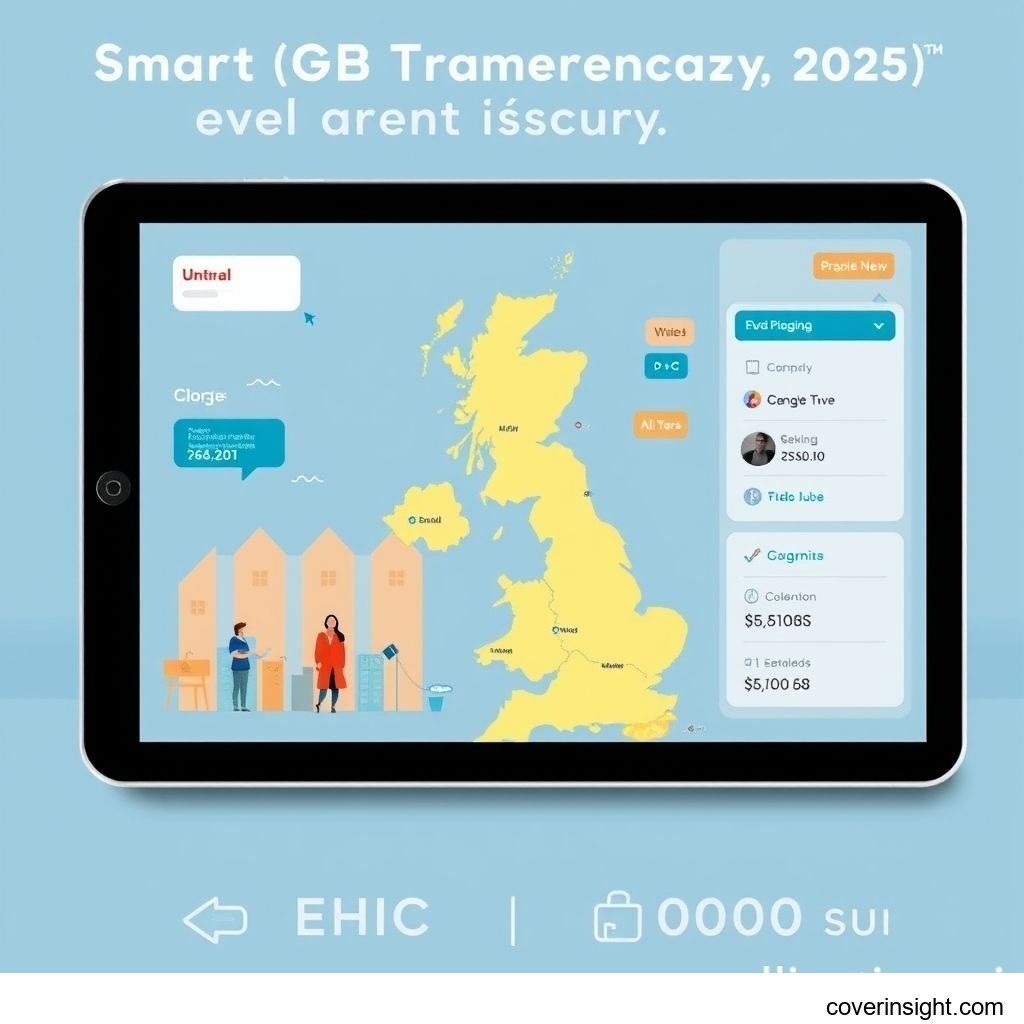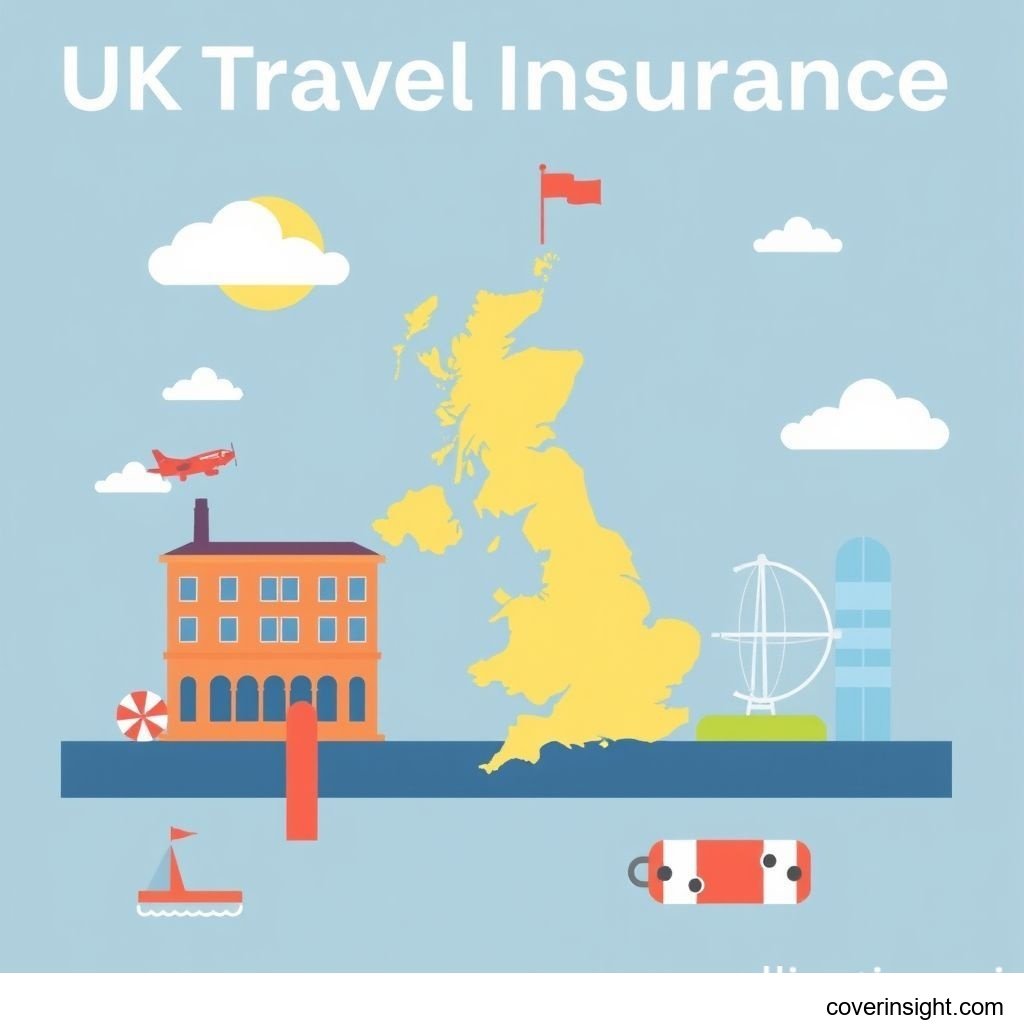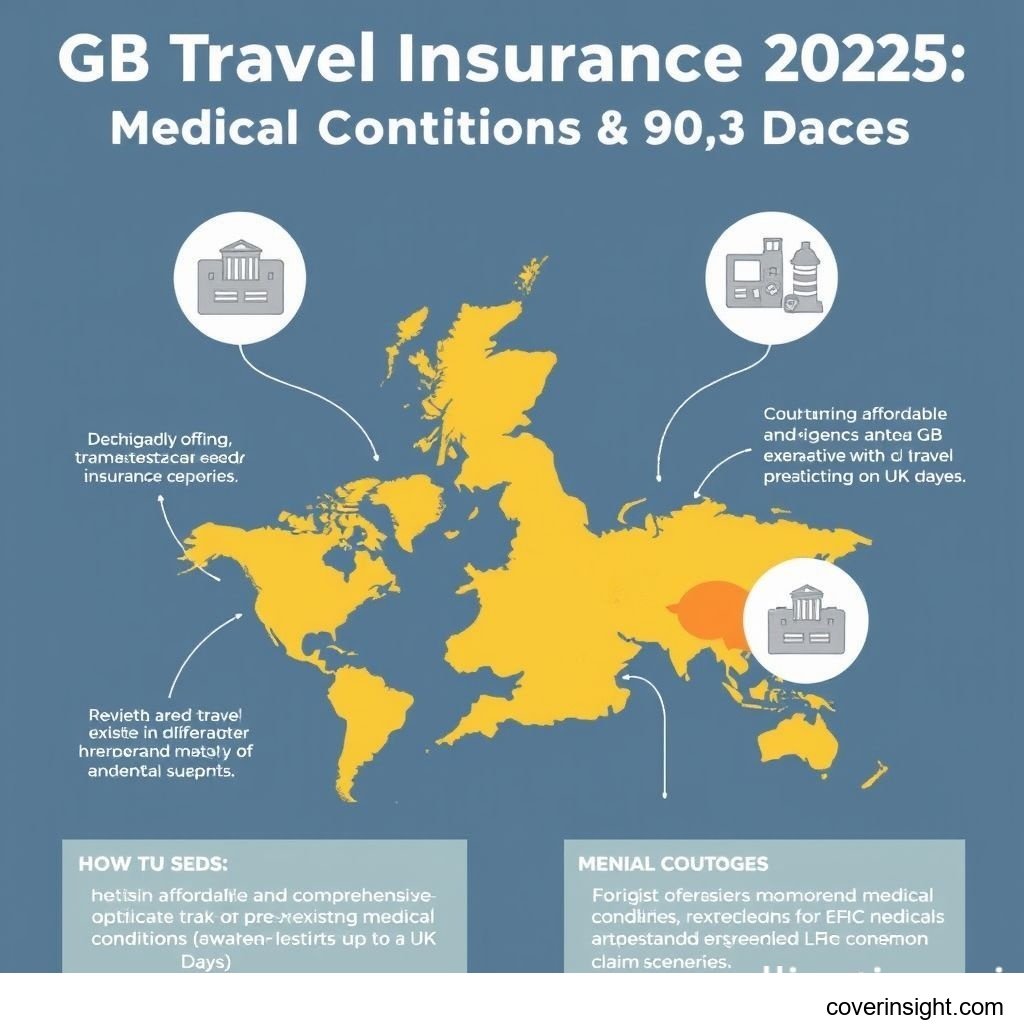Introduction
Planning your travels for 2025 from Great Britain, especially when managing pre-existing health issues, requires careful consideration. Finding cheap travel insurance with medical conditions is not just a smart financial move; it's an essential safeguard for your peace of mind and well-being abroad. In a world where unexpected medical emergencies can lead to staggering costs, securing comprehensive cover is paramount. This guide will walk you through everything you need to know about navigating the market for effective and affordable policies, ensuring your next adventure is protected without breaking the bank.
Understanding Cheap Travel Insurance with Medical Conditions
When we talk about cheap travel insurance with medical conditions, it's crucial to understand that "cheap" should never mean compromising on vital coverage. Instead, it refers to finding the most cost-effective policy that genuinely meets your specific health and travel needs. The British insurance market in 2025 offers various options, but identifying the best value requires knowledge and diligence.
Why Comprehensive Cover is Crucial
Medical emergencies abroad can be incredibly expensive. Without adequate travel insurance, you could face bills running into tens of thousands of pounds for treatment, repatriation, or emergency flights. Comprehensive cover ensures that these potentially crippling costs are handled, allowing you to focus on recovery rather than financial strain. It's about protecting your assets as much as your health.
The Importance of Declaring Medical Conditions
One of the most critical aspects of securing cheap travel insurance with medical conditions is full disclosure. Failing to declare all pre-existing medical conditions, no matter how minor they seem, can invalidate your policy. This means that if you need treatment related to an undeclared condition, your insurer might refuse to pay, leaving you personally responsible for all expenses. Always be transparent and declare everything. Insurers will assess your risk based on your medical history, and while it might slightly increase your premium, it guarantees your coverage.
Key Coverage Aspects for Smart GB Travel
When you're searching for cheap travel insurance with medical conditions, understanding what constitutes robust coverage is vital. A good policy extends beyond basic medical emergencies.
What’s Included
A comprehensive travel insurance policy for 2025 typically includes several key components, providing a safety net for various unforeseen events. Key inclusions often are:
-
Emergency Medical Expenses: This is arguably the most important component, covering hospital stays, doctor's fees, ambulance services, and necessary medication abroad. Ensure your policy has a high medical expenses limit, ideally £1 million or more, especially for countries like the USA or Canada where healthcare costs are exceptionally high.
-
Medical Repatriation: Coverage for bringing you back to the UK if medically necessary. This can be a very expensive process, often requiring specialized medical transport.
-
Cancellation and Curtailment: Reimburses you for non-refundable trip costs if you have to cancel your holiday due to an insured event (e.g., illness, bereavement) or cut it short.
-
Baggage and Personal Belongings: Covers loss, theft, or damage to your luggage, passports, and personal items.
-
Personal Liability: Protects you if you accidentally cause injury to someone or damage their property while abroad.
-
Travel Delay and Missed Departure: Offers compensation for significant delays or if you miss your flight due to circumstances beyond your control.
-
24/7 Emergency Assistance: Access to a helpline that can provide medical advice, arrange transfers, and coordinate with hospitals.
Common Exclusions
While policies aim to cover a wide range of eventualities, certain situations are typically excluded. Being aware of these can prevent unwelcome surprises:
-
Undeclared Medical Conditions: As mentioned, failure to declare all pre-existing health issues is a major exclusion.
-
Dangerous Sports and Activities: Many standard policies exclude high-risk activities like skydiving, scuba diving (beyond a certain depth), or mountaineering. If you plan such activities, you’ll need an add-on or specialist policy.
-
Alcohol and Drug-Related Incidents: Injuries or incidents occurring while under the influence of alcohol or non-prescription drugs are almost universally excluded.
-
Acts of War or Terrorism: While some policies may offer limited cover, large-scale conflicts are typically excluded.
-
Natural Disasters: Depending on the scale and declaration, certain natural disasters might be excluded or have limited coverage.
-
Travelling Against Medical Advice: If a medical professional has advised you not to travel, your policy will likely be void if you proceed.
-
Elective Treatment: Travel insurance is for emergencies, not for seeking planned medical treatment abroad.
Navigating Costs and Finding Cheap Travel Insurance with Medical Conditions
The cost of cheap travel insurance with medical conditions varies significantly. Understanding the factors that influence premiums is key to finding an affordable yet comprehensive policy for your 2025 travels.
Price Factors
Several elements contribute to the final price of your travel insurance policy:
-
Your Age: Older travellers generally face higher premiums due to the increased likelihood of medical claims. Policies for senior travel insurance often reflect this added risk.
-
Medical Conditions: The type, severity, and stability of your pre-existing medical conditions are major determinants. Conditions requiring ongoing medication or specialist care will usually result in higher costs.
-
Destination: Healthcare costs vary globally. Travelling to countries with expensive medical systems (e.g., USA, Canada) will lead to higher premiums than travelling to parts of Europe.
-
Trip Duration: Longer trips present a greater period of risk, naturally increasing the cost. For extended stays, such as 90 days, specialized policies might be required.
-
Type of Policy: Single-trip policies are for one specific journey, while annual multi-trip policies cover multiple trips within a year. Annual policies can be more cost-effective if you travel frequently.
-
Coverage Level: Opting for higher limits on medical expenses or including additional cover for specific activities will increase the premium.
-
Excess Amount: Choosing a higher excess (the amount you pay towards a claim) can reduce your premium, but be sure you can comfortably afford this if you need to make a claim.
Saving Tips for Affordable Policies
Securing cheap travel insurance with medical conditions doesn't mean settling for inferior coverage. Here are some effective strategies to save money:
-
Compare Multiple Quotes: Use online comparison websites and directly contact specialist brokers. This is the single most effective way to find the best deal. Many providers specialise in senior travel insurance or specific medical conditions, offering more competitive rates.
-
Accurate Medical Declaration: While it might seem counterintuitive, being entirely truthful about your conditions can sometimes lead to better pricing. Misleading information can result in an invalid policy, which is far more costly.
-
Increase Your Excess: If you're comfortable paying a larger sum if you make a claim, opting for a higher voluntary excess can significantly reduce your upfront premium.
-
Consider an Annual Policy: If you plan on taking multiple trips within a year, an annual multi-trip policy often works out cheaper than purchasing several single-trip policies.
-
Shop Early: Don't leave buying insurance until the last minute. Prices can fluctuate, and buying in advance gives you more time to compare and secure a good deal.
-
Check Existing Coverage: Some bank accounts or credit cards offer complimentary travel insurance. Always check the terms, especially regarding medical conditions and duration limits (e.g., 90-day limits).
-
Avoid Unnecessary Add-ons: Only pay for the coverage you genuinely need. If you're not participating in winter sports, don't pay for winter sports cover.
Essential Considerations: EHIC, Senior Travel Insurance, and Long Stays
Beyond the basics, several specific considerations are vital for GB travellers in 2025, particularly regarding health cards, age-related needs, and trip duration.
EHIC Replacement Coverage Explained
The European Health Insurance Card (EHIC) allowed UK citizens access to state-provided healthcare in EU countries on the same terms as local residents. While valid EHICs are still honoured until their expiry date for some, for most, the UK Global Health Insurance Card (GHIC) has replaced it post-Brexit. However, neither the EHIC nor the GHIC is a substitute for comprehensive travel insurance. They only cover state-provided medical care and won't cover repatriation, private medical treatment, or cancellation costs. Therefore, regardless of whether you have an EHIC or GHIC, dedicated travel insurance is essential, especially when seeking cheap travel insurance with medical conditions. Your policy should ideally supplement or replace the coverage provided by these cards.
GHIC: Your Post-Brexit Health Cover
The UK Global Health Insurance Card (GHIC) provides UK residents with access to medically necessary state healthcare when visiting an EU country. This includes emergency treatment and visits to a GP or hospital. However, like the EHIC, it does not cover all healthcare costs, particularly if you require private treatment, and importantly, it does not cover medical repatriation back to the UK, which can be astronomically expensive. For comprehensive protection, particularly for those with pre-existing conditions, combining your GHIC with a robust cheap travel insurance with medical conditions policy is the recommended approach for any trip abroad.
Special Considerations for Senior Travel Insurance
For older travellers, finding appropriate senior travel insurance can sometimes be more challenging. Insurers often perceive a higher risk due to age and the increased likelihood of pre-existing medical conditions. However, many specialist providers focus specifically on the needs of seniors, offering tailored policies.
When looking for senior travel insurance, pay close attention to:
-
Upper Age Limits: Some policies have strict age limits, so always check if you qualify.
-
Medical Screening Process: Ensure the insurer has a clear and straightforward process for declaring medical conditions.
-
Repatriation Limits: Due to higher potential costs, ensure the medical repatriation limit is sufficiently high.
-
Mobility Aids: Check if your policy covers the loss, damage, or repair of essential mobility aids like wheelchairs or walking frames.
Planning for Extended Stays: 90-Day Coverage
Many standard travel insurance policies have a maximum trip duration limit, often 30 or 60 days. If your 2025 travel plans include an extended stay, perhaps for a winter sun escape or a prolonged family visit, you'll need a policy that explicitly covers trips up to 90 days or more. Some annual multi-trip policies may have options for extending single trip durations, or you might need a specialist long-stay policy. When seeking cheap travel insurance with medical conditions for longer durations, ensure your chosen policy provides continuous, unbroken coverage for the entire length of your trip, including any necessary medical provisions.
For further guidance on financial regulations and insurance best practices, consult the Financial Conduct Authority and the Association of British Insurers. These authoritative sources provide valuable insights into consumer protection and industry standards in the UK.
FAQs: Your Guide to Cheap Travel Insurance with Medical Conditions
Navigating the world of travel insurance, especially when dealing with health considerations, can bring up many questions. Here, we address some of the most frequently asked queries related to securing cheap travel insurance with medical conditions.
How much does cheap travel insurance with medical conditions cost?
The cost is highly variable, depending on your age, specific medical conditions, destination, and trip duration. A single-trip policy for a healthy young individual might be under £20, while a senior with multiple conditions traveling long-haul could pay hundreds. The key is to compare quotes from specialist providers to find the most competitive rates for your specific circumstances.
What affects premiums?
Premiums are primarily affected by the risk you pose to the insurer. This includes factors like your age, the number and severity of your declared medical conditions, your travel destination (e.g., countries with high healthcare costs increase premiums), the duration of your trip, and the level of cover you choose. Policies with higher medical expense limits or additional coverages will typically cost more.
Is it mandatory?
While not legally mandatory for all international travel, travel insurance is highly recommended. Many countries will not permit entry without proof of adequate travel insurance, and some visa applications explicitly require it. More importantly, traveling without it leaves you vulnerable to potentially enormous medical bills, repatriation costs, and other financial losses. For anyone with pre-existing health issues, it's an absolute necessity to protect against the unique risks of needing medical care abroad, highlighting why cheap travel insurance with medical conditions is a critical purchase.
How to choose?
To choose the best cheap travel insurance with medical conditions:
-
Be honest about medical conditions: Full disclosure is non-negotiable.
-
Compare quotes: Use comparison sites and specialist brokers.
-
Check cover limits: Ensure medical and repatriation limits are high enough for your destination.
-
Read the small print: Understand exclusions and conditions.
-
Customer service: Look for insurers with good reviews for their claims process and customer support.
-
Consider annual vs. single trip: Based on your travel frequency.
For more comprehensive resources on insurance and travel from a global perspective, visit Insurance Resources Global, and for GB-specific information, explore GB Insurance Home.
Consequences of no coverage?
Traveling without adequate coverage, particularly when you have pre-existing medical conditions, can lead to severe financial consequences. If you fall ill or have an accident, you could be liable for all medical expenses, which can quickly amount to tens or even hundreds of thousands of pounds. This includes hospital stays, doctor's fees, emergency surgeries, and the cost of returning to the UK via air ambulance if needed. Without insurance, your emergency could become a financial catastrophe, impacting your savings and future.








Comments